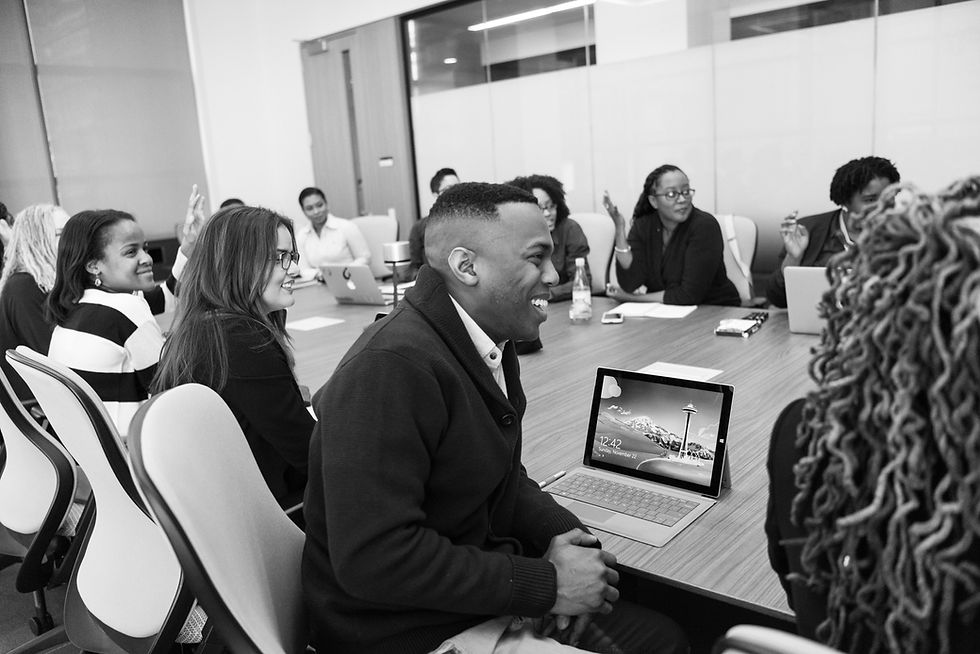Moving Beyond the Demo Lesson: Interviewing Teachers with Purpose
- Nina Mauceri
- Jul 29, 2025
- 3 min read
Updated: Jul 31, 2025
Last week we talked about hiring in a time crunch—but what happens when someone actually walks through the door for an interview?
You might think: demo lesson, handshake, a couple of standard questions, done.
But if you’ve ever hired someone who “aced the interview” only to struggle in real time with kids—you know how misleading that can be. You’re not alone.
Malcolm Gladwell, in Talking to Strangers, points out that interviews are often terrible predictors of future performance. We think we’re good at reading people—but we’re not. Especially in one-off, artificial settings. We tend to trust our gut. But our gut is biased by confidence, charisma, and what we expect to see—not always what matters most in the classroom.
So how do we get better interviewing Teachers?
How do we move beyond the polished demo lesson and scripted answers to actually understand the kind of educator someone is—and how they’ll show up for your school community?
1. Don’t Over-Index on the Demo Interviewing Teachers
Yes, a demo lesson is useful. But it’s not the full story.
In July or August, most candidates are demo-ing in someone else’s classroom, with kids they don’t know, and maybe content they didn’t choose. You’re seeing a slice—but not the core.
What you can look for:
● How they adapt in the moment (do they notice when students aren’t following?)
● How they talk to kids (is there warmth? respect? cultural awareness?)
● How they reflect afterwards (“What would you do differently?” tells you more than what they actually did.)
2. Ask Questions That Reveal Mindset, Not Just Experience
Instead of:
“How do you differentiate instruction?”
Try:
“Tell me about a student you struggled to reach. What did you try? What happened?”
Instead of:
“What’s your classroom management style?”
Try:
“When’s the last time a student called you out—or challenged something you said? How did you respond?”
Instead of:
“Are you committed to equity?”
Try:
“What’s something you’ve learned—or unlearned—about your own identity or bias in the last few years?”
These are the questions that help you understand how someone thinks, not just how they perform.
3. Listen to What They Say About Kids
When candidates talk about students, pay attention. Are they:
● Centering students’ strengths, or focusing on control?
● Blaming families, or seeking relationships?
● Seeing behavior as defiance—or communication?
One of the best follow-up questions:
“How would students in your last school describe you?”
Not “how would you describe yourself.” How would your students?
4. Build in Real Conversation
After the demo, invite the candidate to talk informally with a teacher on your team. Or take a short walk through the school together. People show up differently in casual moments—and often more authentically. You might learn more in that hallway chat than in a whole panel interview.
5. Be Transparent About Who You Are, Too
Hiring is mutual. If you’re building a school that values student voice, racial equity, LGBTQ+ inclusion, or restorative practices—say that. Let candidates self-select in or out. Share real challenges, not just a brochure version of your school.
Ask:
“Here’s something we’re working on this year—what would you bring to that?”
People rise to a challenge when they understand the vision.
6. Make a Decision You Can Stand By
If your gut says “maybe,” listen. But also check your bias. Are you unsure because they lack polish? Or because they asked a hard question? Are you hesitating because they’re different—or because they’re not aligned?
Remember: charisma doesn’t teach. Consistency does.
Hiring well takes intention—but it doesn’t have to take forever.
A few well-placed questions, some thoughtful reflection, and a willingness to look beyond the surface can go a long way. You’re not just hiring a skillset—you’re building a culture.
And if you want help designing an interview process that works for your school—or even workshopping sample questions—reach out. I'd love to support you.
Next week: onboarding with purpose—how to make sure your newest staff feel seen, supported, and ready to lead by September.
📞 Book time with Nina: https://bit.ly/3HJWxnJ
Written by Nina Mauceri, PhD, with AI assistance.








Comments